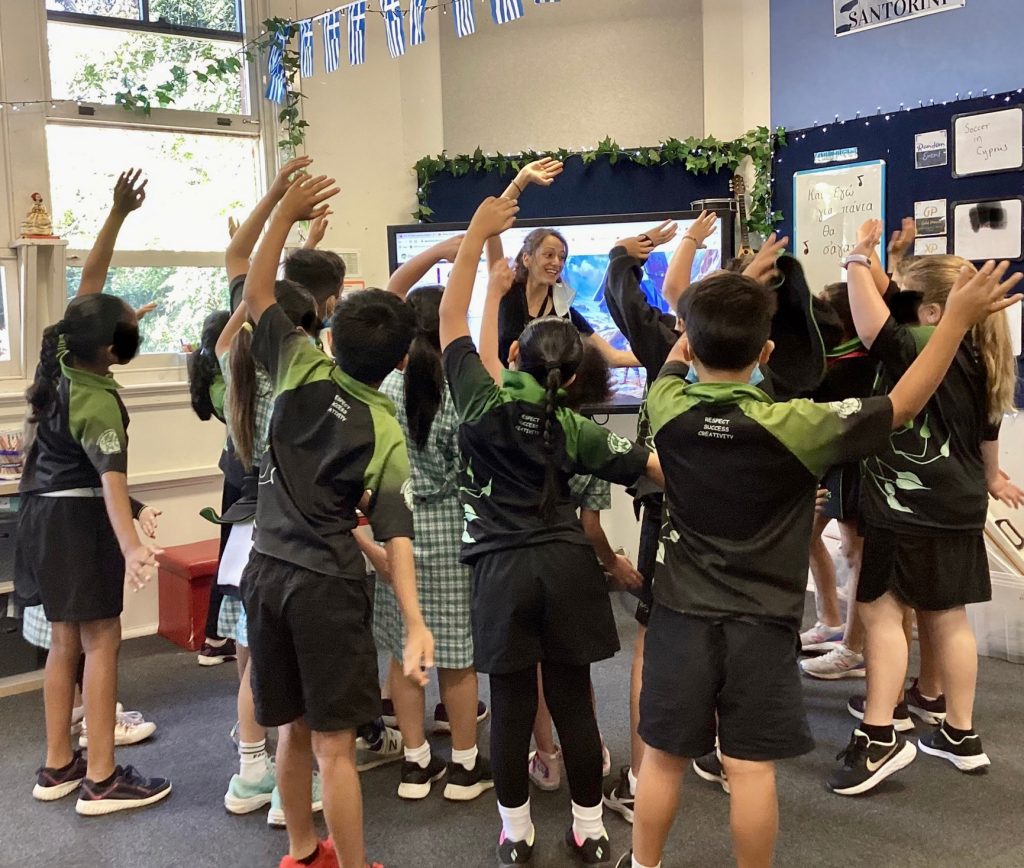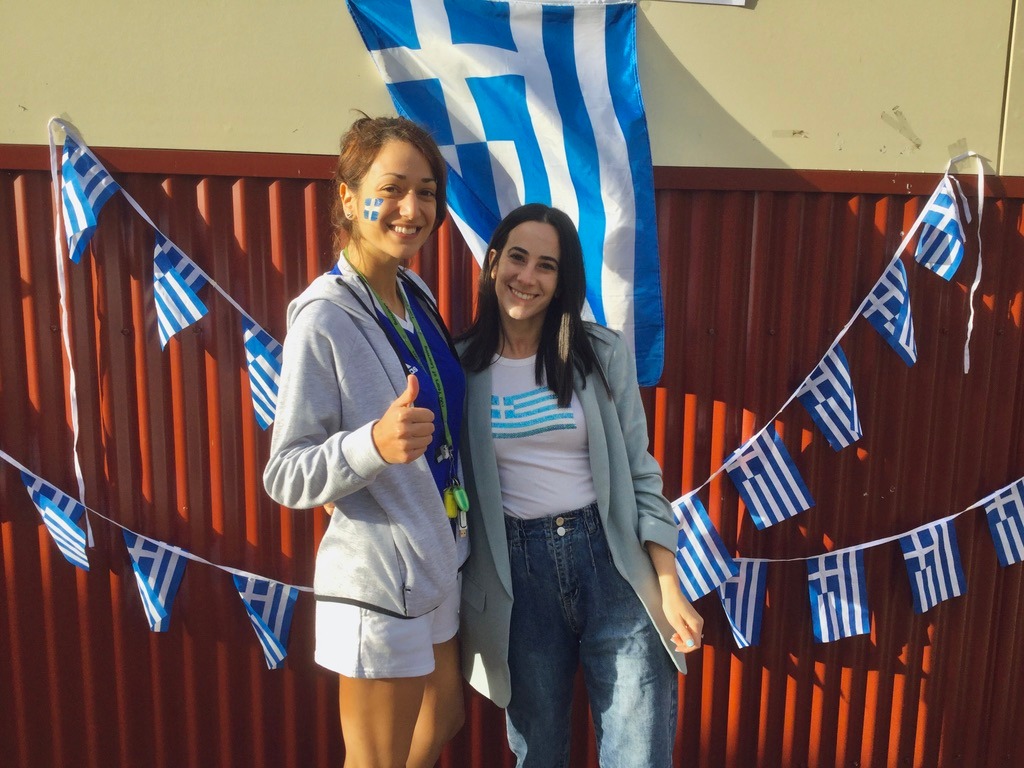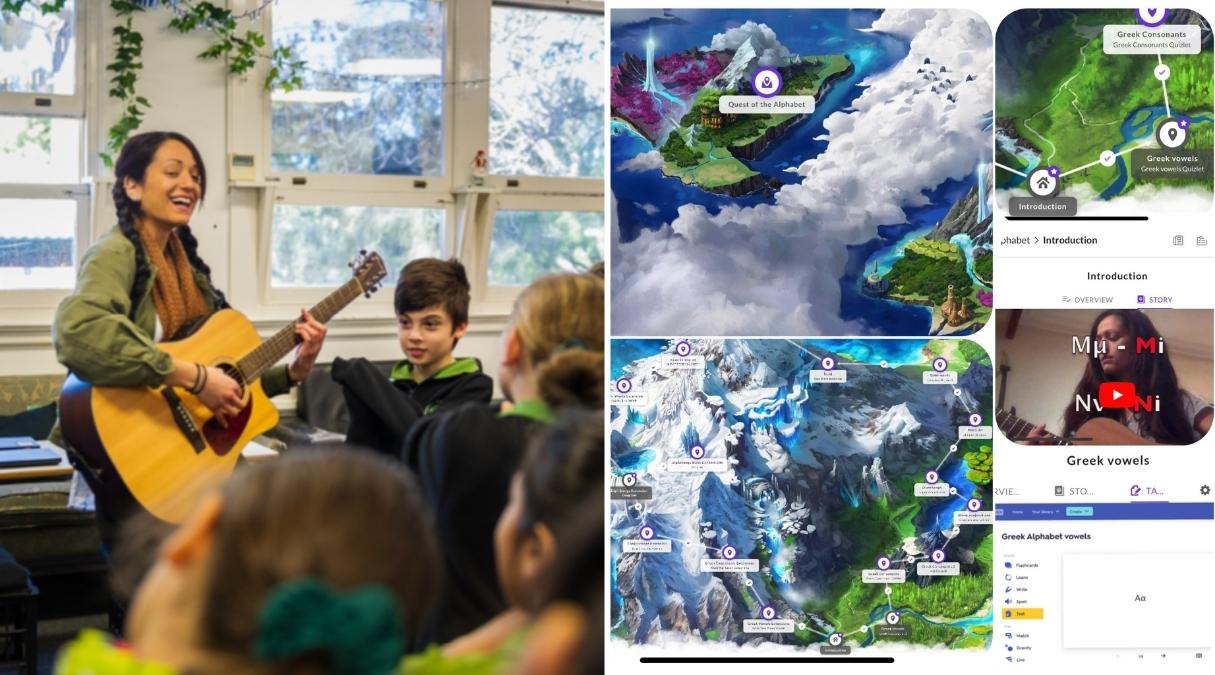In Adelaide’s Prospect Primary School, students create avatars to represent them and complete video game quests based on the Greek language, history and culture in order to collect the most points by the end of each academic year.
“To progress to the next stage of the game students have to learn a traditional dance like Kalamatiano or answer a question about history or mythology,” teacher Simone (Asimina) Karanicolas tells The Greek Herald.
“Greek is not easy to learn and the way I see it, students need to enjoy it. Once they leave primary school, I don’t want them to look back and only remember ‘Yiasou’ (yah-soo means hello, goodbye and cheers in Greek).”

Gamification, the concept of using game-like mechanisms to encourage learning, is currently one of the largest trends in education globally and although not a silver bullet for learning, it can make the classroom more exciting and inspire students.
For Ms Karanicolas, incorporating music and producing videos that she uploads on her YouTube channel has also proven effective not only for her students who are primarily of non-Greek speaking backgrounds but also for aspiring learners from around the world.
“I always remind them [the students] that if they learn the language they’ll get to interact with Greek people. Because Australia is such a multicultural country and all the students have come across at least one Greek person in their life or at least know someone who knows a Greek person,” she says.
“In the YouTube channel, I try to film in locations that are local to them [students] so they can connect more and realise that Greek and other languages are integrated with their immediate surroundings.”
With her new YouTube video series, the educator aims to teach basic grammar to upper primary school students.
“Up until this point I’ve transformed popular music into educational videos but now I want to teach the basics of Greek grammar and the structure of the language so I don’t only teach vocabulary,” she says.
Ms Karanicolas says that the school community as well as South Australia’s wider Greek community support her efforts.

“They love the initiatives and they understand they benefit the kids. I’m lucky.”
Now she wants to create “a bridging program between Prospect Primary School and Adelaide’s High Schools that teach Greek to make the connection stronger and encourage more kids to continue studying the language.”
Despite the challenges the pandemic brought for educators, Ms Karanicolas says she keeps learning from her students every day and is more determined to find ways to instil in them the language and culture she grew up with.
“Kids make me happy. They don’t give you a chance to be upset.”

